Loneliness matters. Pyx cares.
We're on a mission to raise awareness about the loneliness epidemic and its impact on individuals and our healthcare system alike.
Building Awareness and Bringing Loneliness to Light
Loneliness isn’t about being alone, or how many people are around you. It’s the feeling that no one can understand you or the burden you’re carrying.
If you are experiencing a life-threatening emergency, please call 911
If you or someone you know is feeling lonely or isolated, reach out.
Download the Pyx Health app on your smartphone or tablet
If you are experiencing a life-threatening emergency, please call 911
Pyx Health is not a registered health care provider and does not provide medical, behavioral health, emergency, or other professional diagnosis or treatment services
Our why
Pyx Health founders Anne and Cindy Jordan experienced the crisis of loneliness firsthand with their daughter Rylie. Her struggles, and the pain and loss they caused, are the driving force behind their mission: to tackle loneliness when it matters, for those who need it most. If you’re feeling lonely, please reach out. We’re here for you.
Activities and resources for addressing loneliness

When feelings of isolation and despair are heightened, there are scientifically proven habits that can help in both the short- and long-term. Here are a few that Pyx Health users put into practice that statistically reduce loneliness over time:

“Three Good Things”
Studies have found that people who take the time to write down three good things that happen to them each day feel less depressed, less isolated, and more grateful.

Gratitude Letters
Writing a “gratitude letter” to the people who have helped you through a difficult time is also proven to elevate your mood and overall well-being. Gratitude journaling — which means writing down what you’re grateful for daily, even just for a few minutes — is another successful approach.
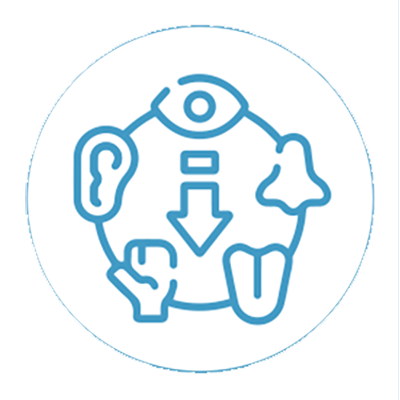
5-4-3-2-1
If stress is a factor in your loneliness, try the 5-4-3-2-1 stress reduction technique — looking for five things you can see, four you can hear, three you can touch, two you can smell, and one you can taste, to focus less on the stress and be more mindful of the world around you.
Download the Pyx Health app on your smartphone or tablet
Understanding loneliness

Loneliness is more than just a feeling – it impacts our physical and mental health. It can even reshape the way we think about and process social cues and situations. It’s highly correlated with depression and myriad other diseases, and it’s a priority for the Surgeon General. It impacts people from all walks of life regardless of age, gender, geographic location, or economic status.
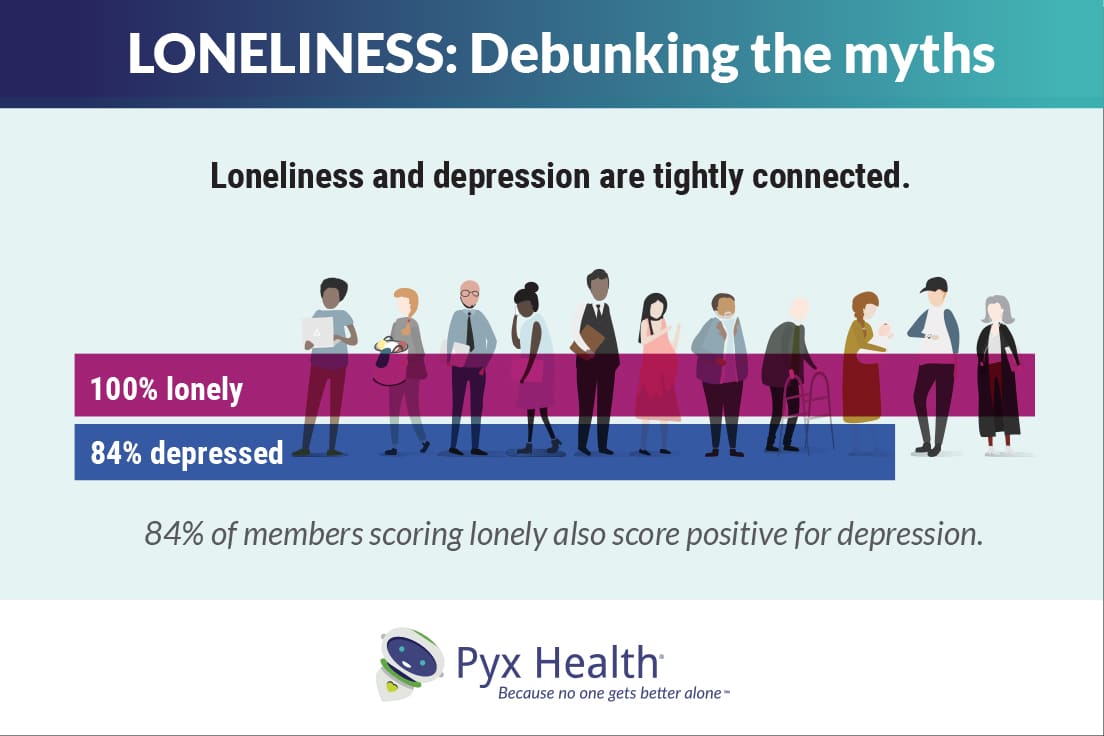
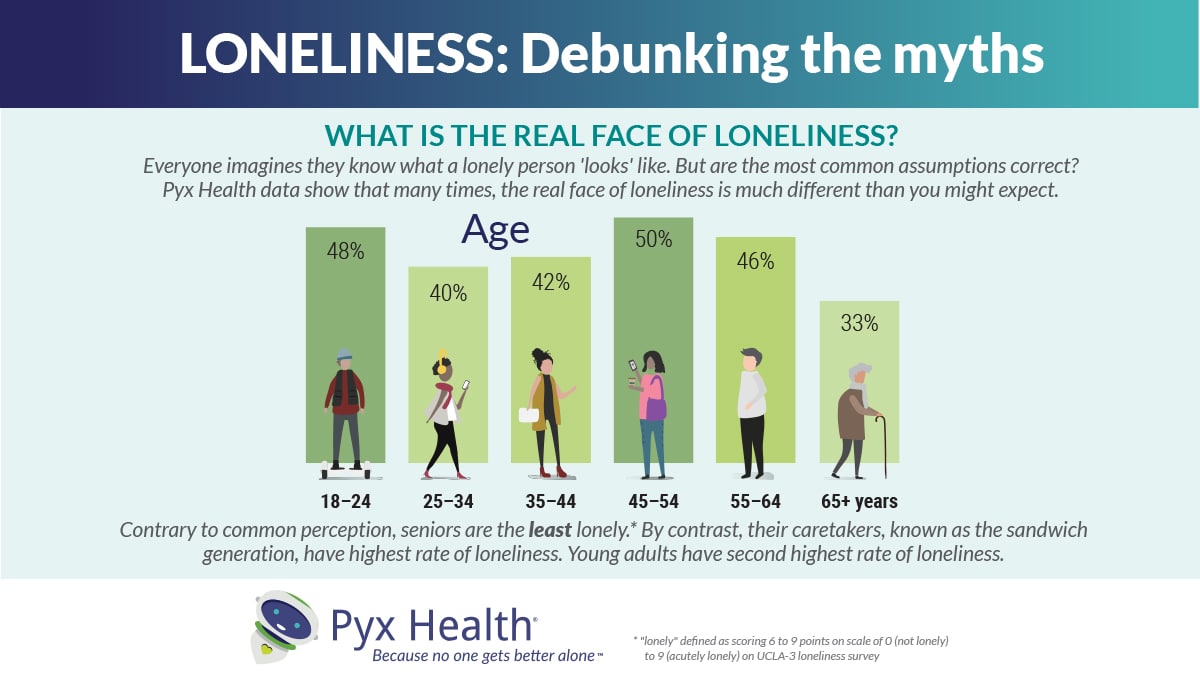
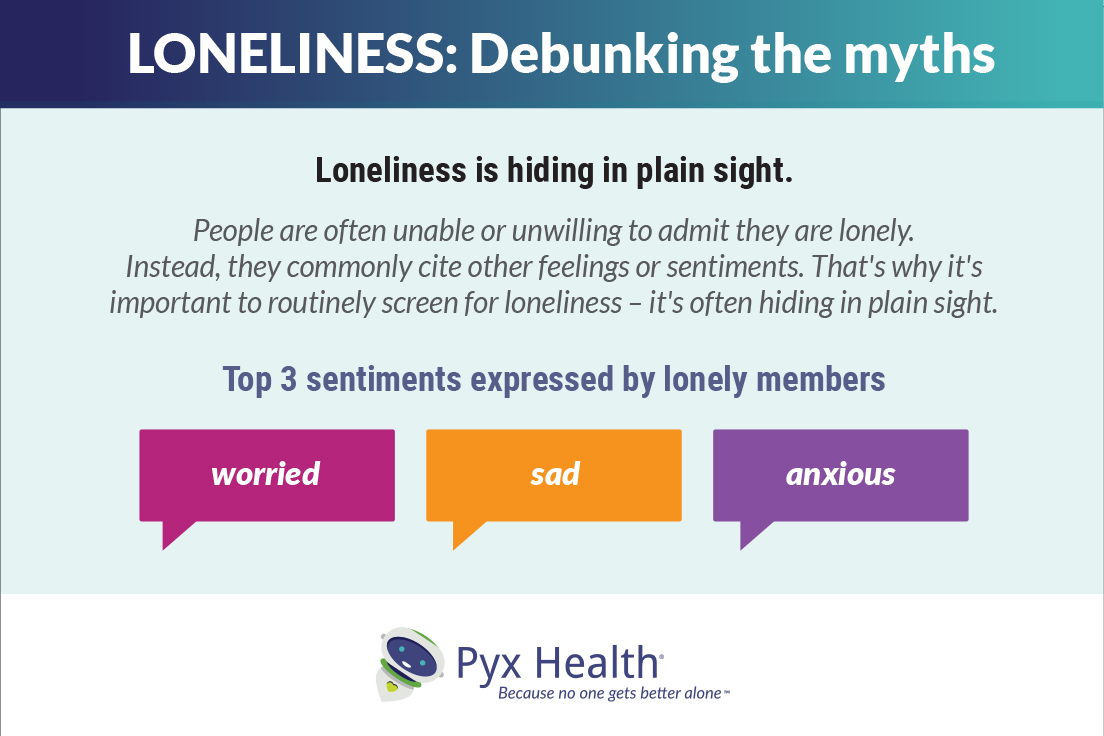
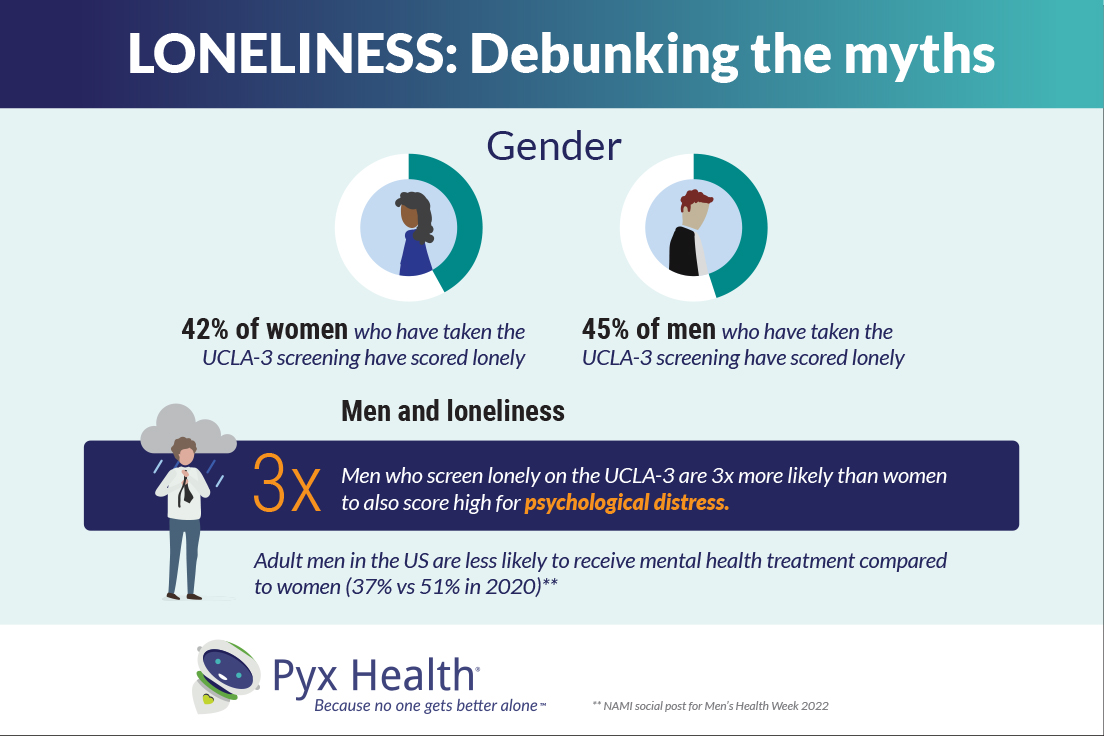
Loneliness and Isolation – are they the same?
While much of the mainstream information surrounding loneliness and social isolation would suggest that they are the same, they are not. The truth is that they are different, and more importantly, require different solutions and approaches.
Social isolation occurs when a person is in a state of limited social interaction or faces a physical barrier to social connection. Loneliness, on the other hand, is a complex and nuanced condition; it is the feeling that no one understands you or the burden you carry, and that no one could possibly “get it”.
While social isolation may eventually lead to loneliness, it is not synonymous with loneliness.
Someone can be surrounded by others constantly and still be lonely.
And while isolation is often solved with self-management tools and physical social engagement, loneliness should be identified and treated with science-backed intervention and support.
Loneliness and isolation must be understood for their differences so that they can be solved appropriately and effectively.
Interested in learning more about the science of loneliness?
We’ve just started to scratch the surface on this page. If you’re interested in taking a deep dive into the science of loneliness and learning more about it, please visit our Loneliness Library for articles, resources and information.
Disclaimer: Pyx Health is not a registered health care provider and does not provide medical, behavioral health, emergency, or other professional diagnosis or treatment services.
